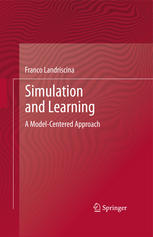

Most ebook files are in PDF format, so you can easily read them using various software such as Foxit Reader or directly on the Google Chrome browser.
Some ebook files are released by publishers in other formats such as .awz, .mobi, .epub, .fb2, etc. You may need to install specific software to read these formats on mobile/PC, such as Calibre.
Please read the tutorial at this link: https://ebookbell.com/faq
We offer FREE conversion to the popular formats you request; however, this may take some time. Therefore, right after payment, please email us, and we will try to provide the service as quickly as possible.
For some exceptional file formats or broken links (if any), please refrain from opening any disputes. Instead, email us first, and we will try to assist within a maximum of 6 hours.
EbookBell Team

4.1
70 reviewsThe main idea of this book is that to comprehend the instructional potential of simulation and to design effective simulation-based learning environments, one has to consider both what happens inside the computer and inside the students' minds. The framework adopted to do this is model-centered learning, in which simulation is seen as particularly effective when learning requires a restructuring of the individual mental models of the students, as in conceptual change. Mental models are by themeselves simulations, and thus simulation models can extend our biological capacity to carry out simulative reasoning. For this reason, recent approaches in cognitive science like embodied cognition and the extended mind hypothesis are also considered in the book.. A conceptual model called the “epistemic simulation cycle” is proposed as a blueprint for the comprehension of the cognitive activies involved in simulation-based learning and for instructional design.